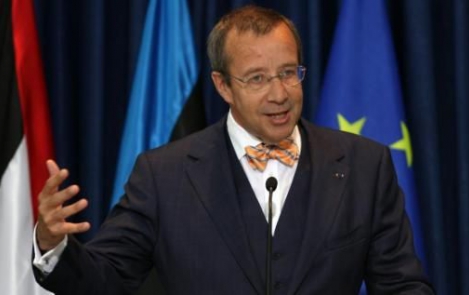-
Reset
+


"Nordic-Baltic ICT, Europe's inspiration", New Europe, 23 January 2013
23.01.2013
Nerea Rial
The Nordic-Baltic region is known as a competitive and innovative area in Europe, where the ICT sector has became the cornerstone for its economic and social development success. Therefore, what can other countries learn from Denmark, Finland, Norway, Sweden and Estonia to create their own ICT powerhouse?
A big percentage of Estonian citizens use ICT technologies and online services in their daily life. For instance, 21% of them buy goods online, 91% of country's businesses use e-government facilities and 35% of the total business expenditure on R&D is dedicated to ICT services.
These figures are possible because there is a combination of private and public sectors, besides a "political will among these countries to go further", Toomas Hendrik Ilves, President of Estonia, explained during the conference "Challenging the Nordic and Baltic ICT Powerhouse" on 23 January in Brussels.
According to Hendrik Ilves, Nordic and Baltic countries have to work together and show Europe the positive effects of the ICT. "The rest of Europe will see the benefits, but first of all we need to be the example", he stated, adding region's next challenge is to empower the e-commerce sector.
In May 2011, Microsoft acquired the Estonian software Skype for $8,500 millions, an action that highlighted the quality and importance of European innovations. The tech giant is valuing the potential of Nordic and Baltic products and also the people behind them.
"We found a great reserve of talent, where technical and entrepreneurial skills are combined", explained Brad Smith, Microsoft's General Counsel and Executive Vice President. He also emphasised that Europe is still not realising about the importance of computer science and that "we can do a lot if we connect more with each other."
In addition, different experts from the Nordic-Baltic region and governmental institutions gave advices to inspire Europe. All of them agreed on the importance of ICT education at schools and universities, and Natasha Friis Saxberg, CEO of Gignal, explained that governments should create a good ecosystem for new start-ups.
The creator of the famous game Angry Birds, Harri Koponen, stressed that one of the key elements to achieve success is to think about "fans", citizens. Companies must pay attention on what they want and what they need, because they don't care about technology, they want things that work and that are useful.
In addition, the European Commission is working on a digital single market, and looks at these countries as an example of how things should be done to generate growth, said Roberto Viola, Deputy Director General of DG Connect. However, new skills are needed are programmes based on big data, not only founding, explained Jorgen Abild, ICT Director at Ministry of Business & Growth in Denmark.
Despite these five countries are the best example for Europe, they also need to go further and demonstrate that much more can be done. In this way, they welcome new talents from all over the world and encouraged people to think global and not only at local-level.
Original article on the New Europe webpage.



